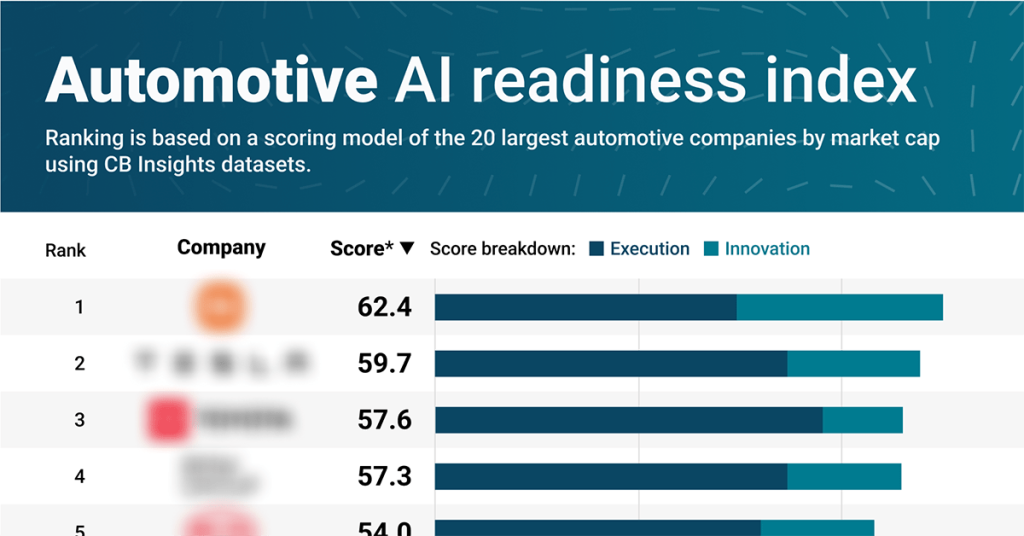The automotive industry is undergoing a major shift as leading automakers are increasingly becoming AI-driven businesses.
These automakers are leveraging AI across the entire value chain — optimizing logistics, personalizing in-car experiences, and advancing autonomous driving. Design teams use generative models to prototype more quickly, while smart factories deploy AI-powered robots to automate complex assembly processes.
We analyzed the AI strategies of the 20 largest global automakers by market cap to identify who is winning the race for AI-powered vehicles and factories. Based on our analysis, we reveal 3 critical insights shaping the future of automotive AI:
AI leaders deploy across the full stack. Automakers leading in AI adoption are not just experimenting — they are deploying AI across all core functions: R&D, manufacturing, supply chain, in-car systems, and customer experience. Multi-domain execution is now the clearest signal of long-term AI readiness.
Partnership ecosystems can bridge the gap. Automakers falling behind in AI capabilities can accelerate progress through strategic alliances with AI chipmakers, autonomous driving startups, and software integrators. Ecosystem orchestration supports their progress more effectively than in-house development alone.
Distributed AI networks will define the next competitive moat. The future goes beyond isolated AI tools and into connected AI systems. From fleet data powering robotic model updates to vehicle predictive maintenance helping optimize factory quality control, the competitive edge lies in orchestrating AI into dynamic, self-improving networks.


